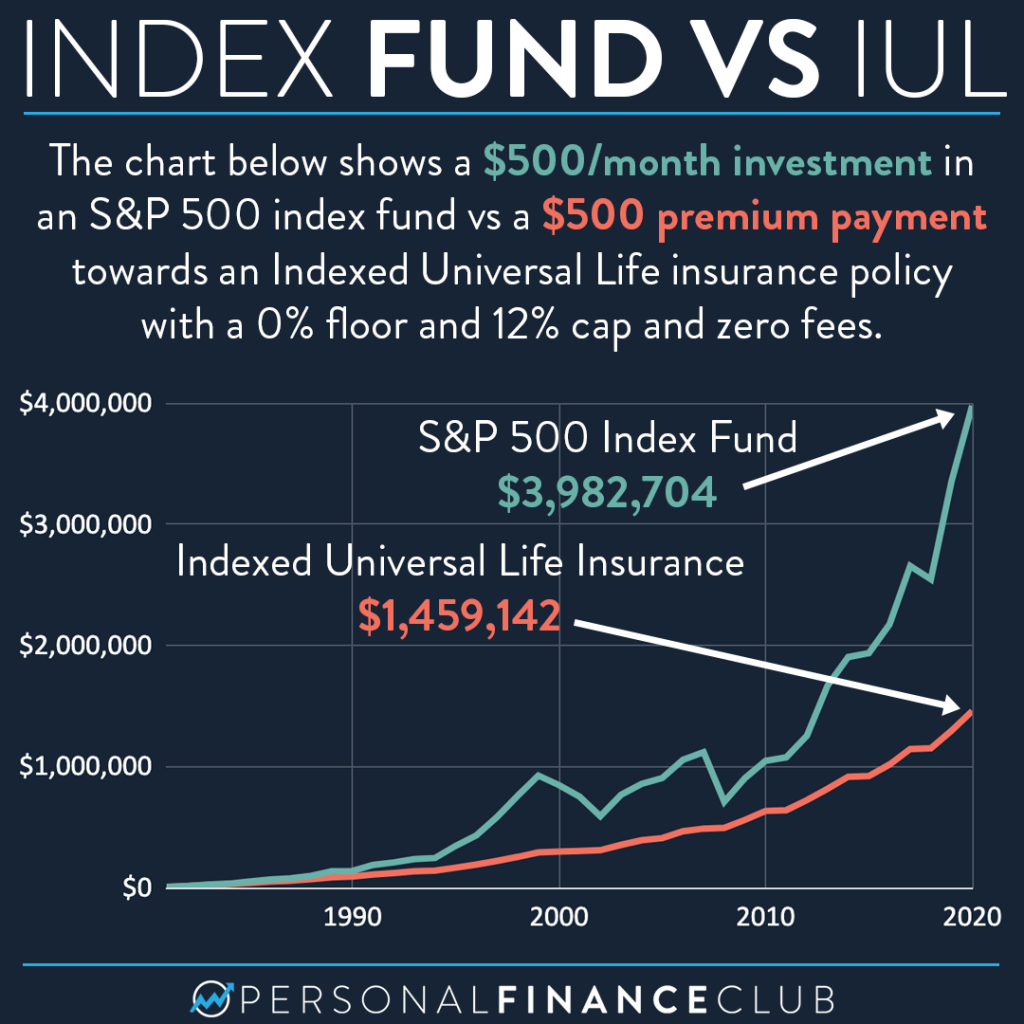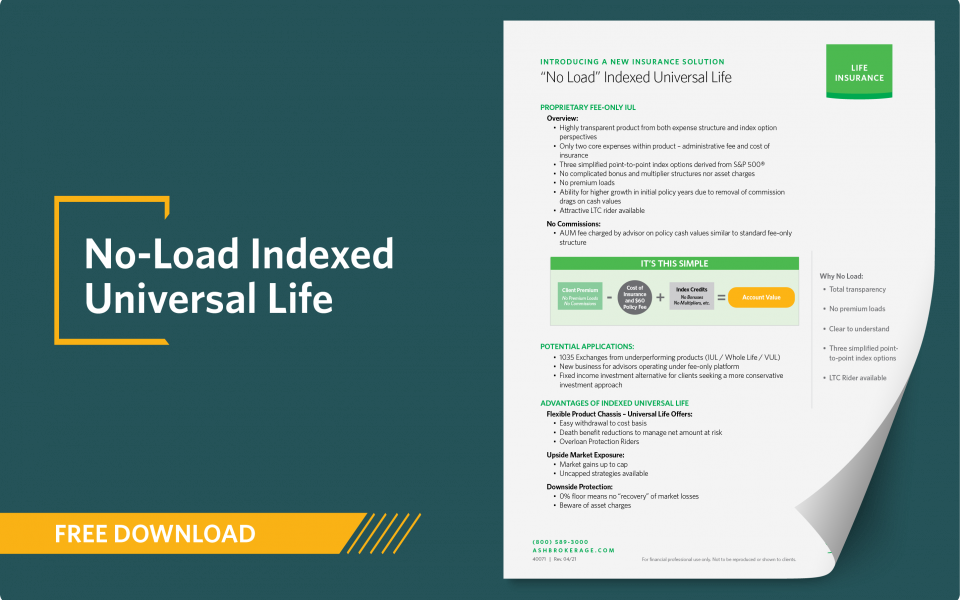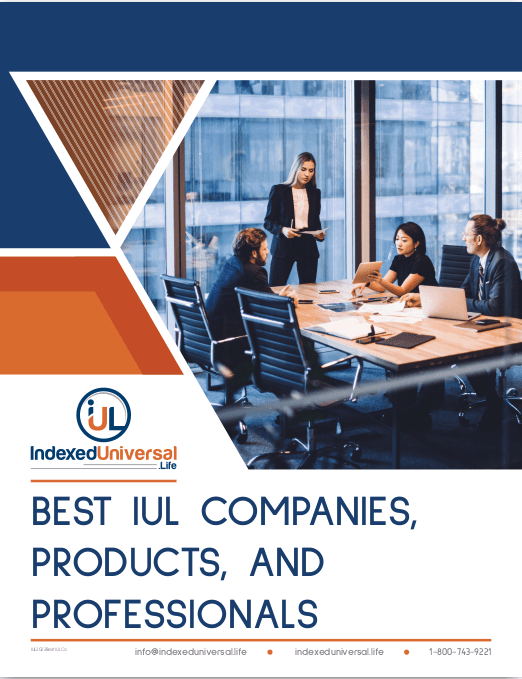All Categories
Featured
Table of Contents
For earning a restricted quantity of the index's development, the IUL will certainly never ever receive less than 0 percent passion. Even if the S&P 500 decreases 20 percent from one year to the next, your IUL will not lose any type of cash value as an outcome of the marketplace's losses.

Imagine the passion intensifying on an item with that kind of power. Offered all of this details, isn't it conceivable that indexed global life is an item that would enable Americans to acquire term and invest the remainder?
A real financial investment is a safeties product that is subject to market losses. You are never ever based on market losses with IUL simply since you are never based on market gains either. With IUL, you are not purchased the marketplace, but simply gaining passion based on the performance of the market.
Returns can expand as long as you proceed to make settlements or keep an equilibrium.
Problems With Universal Life Insurance
Unlike universal life insurance coverage, indexed universal life insurance coverage's money value gains rate of interest based on the performance of indexed stock markets and bonds, such as S&P and Nasdaq., states an indexed universal life policy is like an indexed annuity that really feels like universal life.

As a result of these features, long-term life insurance coverage can function as an investment and wealth-building device. Universal life insurance policy was created in the 1980s when rates of interest were high. Like various other kinds of permanent life insurance, this plan has a cash money value. Universal life's money value earns rate of interest based upon existing money market prices, however passion rates vary with the marketplace.
Indexed global life plans provide a minimum surefire rates of interest, additionally called a passion crediting floor, which decreases market losses. Say your cash worth sheds 8%. Numerous business give a flooring of 0%, suggesting you won't shed 8% of your financial investment in this instance (adjustable life insurance policy). Understand that your cash worth can decline despite having a floor due to costs and various other expenses.
Eclipse Indexed Life Insurance
It's also best for those ready to assume additional risk for higher returns. A IUL is a long-term life insurance policy plan that obtains from the residential or commercial properties of an universal life insurance policy plan. Like universal life, it allows adaptability in your fatality benefit and costs settlements. Unlike global life, your cash money worth grows based upon the efficiency of market indexes such as the S&P 500 or Nasdaq.
Her job has been released in AARP, CNN Emphasized, Forbes, Fortune, PolicyGenius, and U.S. News & World Record. ExperienceAlani has actually examined life insurance policy and family pet insurance firms and has created countless explainers on traveling insurance policy, credit report, financial debt, and home insurance coverage. She is enthusiastic concerning demystifying the intricacies of insurance coverage and other individual financing subjects to make sure that readers have the details they need to make the best cash decisions.

Paying only the Age 90 No-Lapse Premiums will certainly guarantee the fatality advantage to the insured's acquired age 90 however will not assure money worth accumulation. If your customer discontinues paying the no-lapse guarantee costs, the no-lapse attribute will end prior to the ensured period. If this occurs, added costs in a quantity equal to the shortfall can be paid to bring the no-lapse function back effective.
Insurance Policy (IUL) was the ideal thing since cut bread.
Why Indexed Universal Life Insurance Might Be New 401k
First a quick description of Indexed Universal Life Insurance. The attraction of IUL is evident.

If the marketplace decreases, you obtain the guaranteed return, usually something in between 0 and 3%. Obviously, considering that it's an insurance plan, there are also the common prices of insurance coverage, commissions, and abandonment costs to pay. The details, and the reasons that returns are so awful when blending insurance coverage and investing in this specific means, boil down to basically three things: They just pay you for the return of the index, and not the returns.
S&p 500 Insurance Companies
Your maximum return is capped. So if you cap is 10%, and the return of the S&P 500 index fund is 30% (like in 2014), you obtain 10%, not 30%. Some policies just offer a certain percent of the modification in the index, say 80%. If the Index Fund goes up 12%, and 2% of that is dividends, the change in the index is 10%.
Add all these results with each other, and you'll find that long-lasting returns on index global life are pretty darn near those for entire life insurance policy, positive, but low. Yes, these policies guarantee that the cash money worth (not the money that goes to the costs of insurance policy, of training course) will not shed cash, however there is no guarantee it will certainly stay up to date with rising cost of living, a lot less expand at the rate you require it to expand at in order to offer your retirement.
Koreis's 16 factors: An indexed universal life policy account worth can never ever shed cash due to a down market. Indexed global life insurance policy guarantees your account worth, locking in gains from each year, called an annual reset. That's real, however just in nominal returns. Ask on your own what you need to pay in order to have an assurance of no small losses.
IUL account values grow tax-deferred like a qualified strategy (IRA and 401(k)); common funds don't unless they are held within a certified plan. Simply put, this indicates that your account value benefits from triple compounding: You earn rate of interest on your principal, you earn passion on your interest and you make rate of interest on the cash you would otherwise have actually paid in taxes on the passion.
Group Universal Life Insurance Definition
Although certified strategies are a better choice than non-qualified plans, they still have problems not provide with an IUL. Investment options are typically limited to common funds where your account worth goes through wild volatility from exposure to market risk. There is a large difference between a tax-deferred pension and an IUL, but Mr.
You buy one with pre-tax dollars, minimizing this year's tax obligation bill at your marginal tax price (and will certainly usually have the ability to withdraw your money at a reduced efficient rate later on) while you buy the other with after-tax dollars and will be required to pay interest to obtain your very own money if you do not desire to give up the policy.
After that he throws in the timeless IUL sales person scare tactic of "wild volatility." If you despise volatility, there are far better means to reduce it than by purchasing an IUL, like diversity, bonds or low-beta supplies. There are no limitations on the quantity that may be added every year to an IUL.

That's reassuring. Let's believe regarding this momentarily. Why would the government put limits on just how much you can put right into retirement accounts? Possibly, just maybe, it's due to the fact that they're such a large amount that the government doesn't desire you to conserve too much on taxes. Nah, that couldn't be it.
Latest Posts
Universal Life Vs Term Insurance
Universal Life Surrender Value
Pros And Cons Of Indexed Universal Life Insurance